The #onecoilchallenge gets a little outlandish –or perhaps otherworldly?
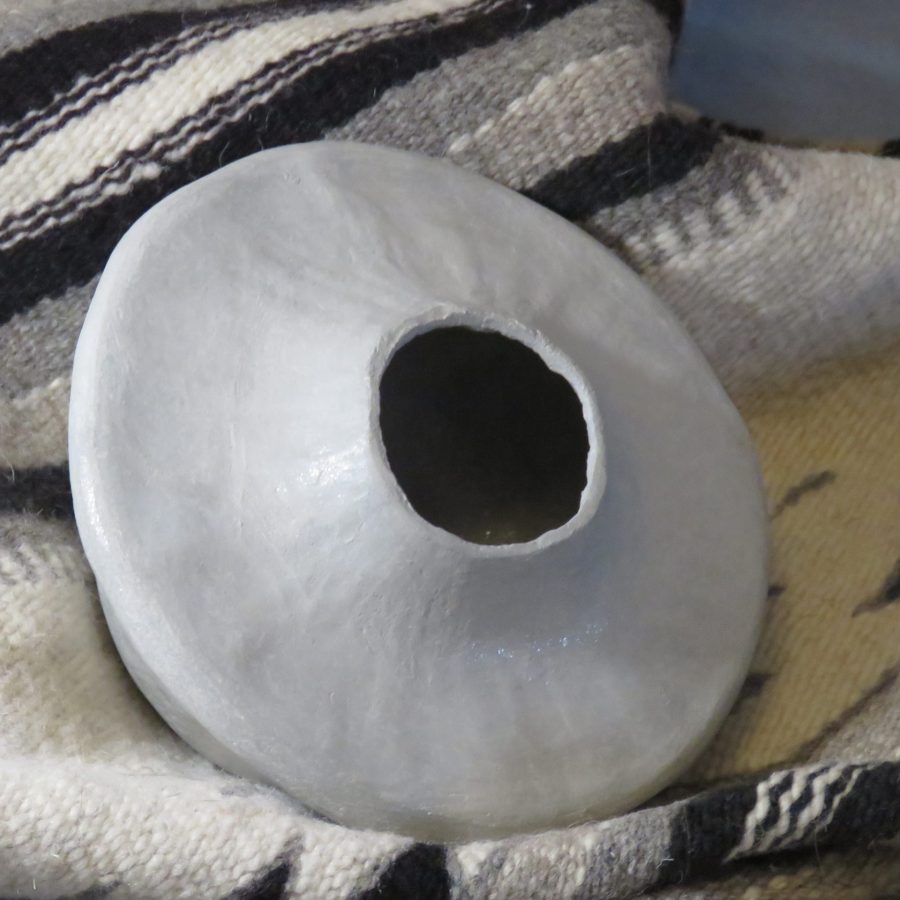
It’s a bird!…It’s a plane! …It’s a pot?!
(Well, I do live in New Mexico, just 20 miles from the Alien Run Crash Site, so you never know…)
This pot-in-progress is an ongoing experiment—not only was I experimenting with a technique I hadn’t used much, but I also tackled it with a white micaceous commercial clay that I hadn’t really tried out (though I had used its redder cousin for my Toad Abode).
The origin of the “UFO” was actually due to my having a whole passle of both slip clays and body clays, including some pinks, purples and greens, and have no idea what colours they will fire. Instead of doing just a Joe Average test tile with the different slips painted on it, I took a page from my friend Wayne Keene’s book. Wayne does the most amazing Sikyátki Hopi-inspired pots, some using almost two dozen colours, all from natural clays. So I decided to do a Wayne Keene-inspired pot, and simply create a “map” before I fired the pots as to which slip I used where…who knows what colours it will turn out!
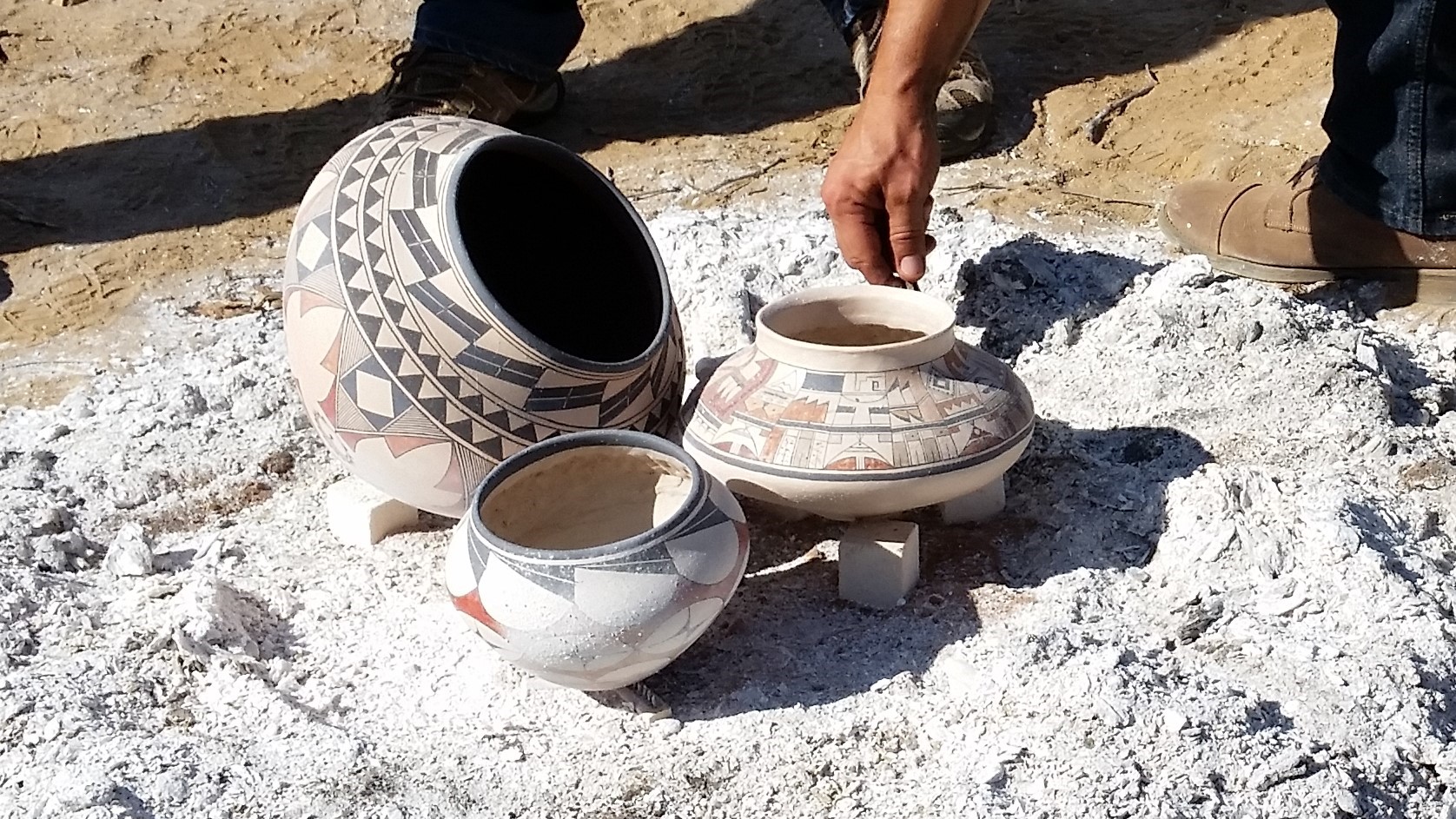
The moment of truth…does it ring?
A few of Wayne’s masterpieces from the 2015 Southwest Kiln Conference.
In keeping with the Hopi-themed pottery, I did a bit of looking online and found some of Nampeyo’s pottery—she was a Hopi-Tewa woman born in the mid-1800s at the village of Hano who began to draw inspiration for her pottery from protohistoric sherds that she found at Hopi sites, including the abandoned village of Sikyátki. Some of her most striking pots were very large, somewhat flattened seed jars that look somewhat like flying saucers. There’s something about that shape that I love–and I don’t think it is just because I live in New Mexico!
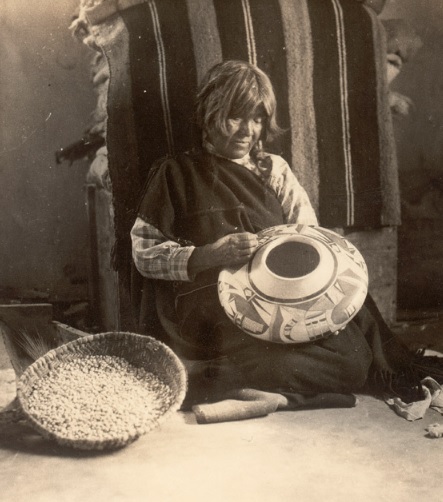
Nampeyo of Hano, c. 1908-1910
Photo by Charles M. Wood
Those of us who are prehistoric pottery replicators (or “replicator wannabes!”) owe a huge debt to women like Nampeyo of Hano and the perhaps better-known Maria Martinez of San Ildefonso, as well as to all of the other indigenous potters from around the world who have continued to keep these traditions alive and thriving. One of these is Dextra Quotskuyva Nampeyo, Nampeyo’s great-granddaughter. Dextra said something that I think that all potters—and indeed all artists—can relate to…she said “One day my pottery calls for me, and I know this is the day that I must do it.”
Search
Search for:
Recent Comments
Categories
Categories Select Category
Archives
Archives Select Month Search for:
Product Categories
SearchSearch
Recent Posts
Recent Comments
No comments to show.
Archives
No archives to show.
Categories
- No categories
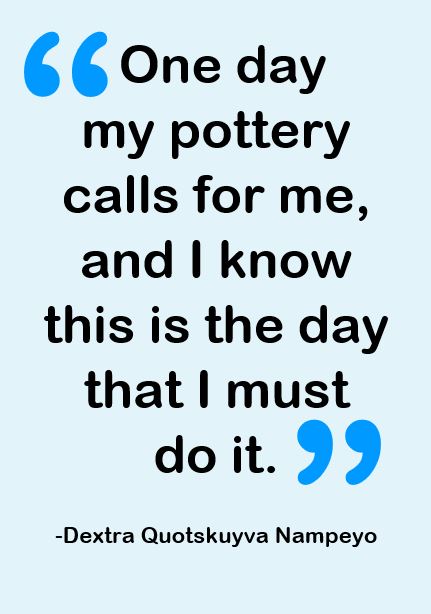
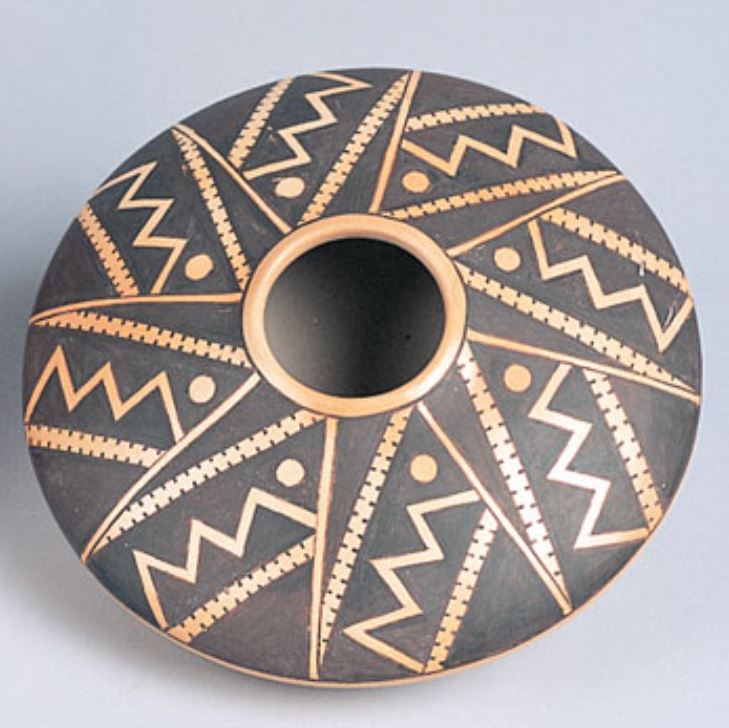

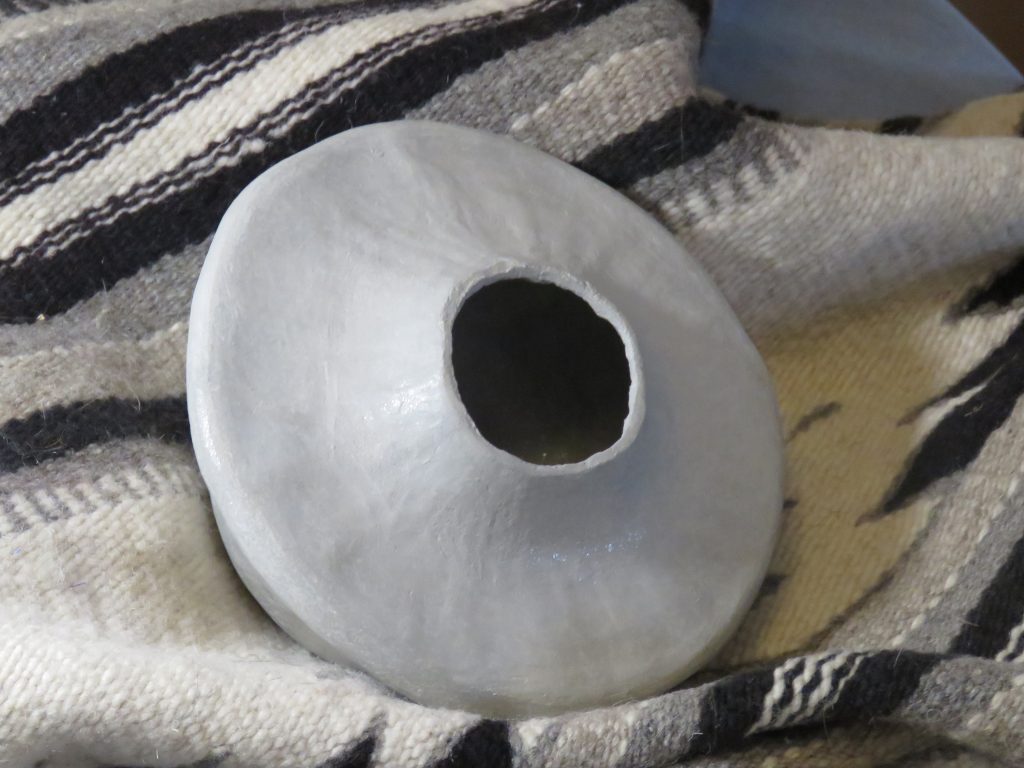
Is this or one similar available for sale?